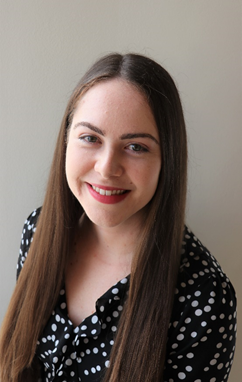Wellbeing News

Welcome back everyone!
Term 1 kicks off with the School Dental Initiative, which commences on Monday 17th March- Friday 21st. This has been a fantastic initiative. Students who visit the van will also be provided with oral hygiene packs (toothbrushes and toothpaste).
In addition to this visit we are also progressing with strategies to maintain oral health hygiene through our ‘healthy options’ food choices initiative. In coming weeks we will be seeking feedback from students about what additional healthy food options they would like to see available at the school in the future.
Our vegetable garden will soon get a boost when later this year we will see the installation of 2 new rainwater tanks for school use and garden use that will enable us to keep our vegetables alive.
You may have noticed the garden near the library has recently had some additions to it. Shane has thoughtfully placed bird baths on top of the values poles so our native birds can have a drink on hot and smoky days. If you notice they need refilling please alert Shane or a member of staff who will refill them for our little visitors.
I can also confirm that Bunnings will be starting on our vegetable garden and school grounds beautifying project this term! Stay tuned for more details.
The Woolworth’s fortnightly fresh fruit initiative continues and I have now commenced the Green trolley project. Anyone with excess fruit or vegetables can donate this to well-being to be accessed by our students. This week I brought in Nectarines and Plums from mine and my neighbours orchard. Hopefully we can bring some beans, peaches and grapes too in the coming weeks. We are also happy to collect excess yields in the local area.
Due to the recent bush fires in East Gippsland, smoke haze has been a big concern for all communities due to the poor air quality and heightened awareness of potential breathing difficulties. Please speak with the school if you have any concerns regarding your child’s health.
Many schools, early learning services, businesses and families in East Gippsland have been impacted in some way by the recent bush fires. Local infrastructures have been damaged or destroyed, and many more children, young people and their families have been – and will continue to be – affected by this crisis. Recovery will be different for each community, depending on the extent of the impact, and the needs of each community may change over time.
I have attached some numbers to support families if they require ongoing support.
In addition, face to face support is available for free.
Emergency distress and trauma counselling, including up to 10 free mental health support sessions, is available for individuals, families and emergency service personnel directly impacted by the bush fire emergency. For more information you can go to:
Supporting the mental wellbeing of young people in Maffra
The Royal Flying Doctors Service (RFDS) Victoria's mental health program ‘Flying Doctor Wellbeing’ offers youth-based services in Maffra. Flying Doctor Wellbeing offers free and confidential mental health and wellbeing appointments at Maffra Secondary College and also from the Maffra Hospital.
The RFDS is encouraging young people, aged between 12 and 17 years old to reach out and access free Flying Doctor Wellbeing services. Appointments do not require a referral from a GP.
Young people might like to access the service to discuss the following:
- Low mood or depression
- Worry, stress or anxiety
- Anger
- Bullying
- Grief and loss
- Family or relationship difficulties
- Low self-esteem and confidence
- Sexuality or gender identity
- Any other mental health or wellbeing issues.
In Maffra, Renae Wallis, a Mental Health Clinician, supports young people to talk through any concerns, and provide advice, resources and strategies to better manage.
“I believe in the importance of early intervention when it comes to mental health. Supporting young people now can help them to develop strength and resilience for the future”.
To make an appointment with Renae at Maffra Secondary College, contact the school Wellbeing team on 03 5147 1790. Alternatively, contact the Flying Doctor Well-being team directly on (03) 8412 0480.
When someone you know has had a traumatic experience
Traumatic experiences are distressing and threatening, and may be so intense as to temporarily disrupt a person’s ability to come to terms with them. Thinking you might die, seeing others killed or injured, intense fear, abuse or being forced to do things out of your control are all traumatic experiences. While traumas occur all the time, they only affect a few people. The reactions of those affected often cause those close to them to be confused and unsure about what to expect or how to help. People who have been traumatised can respond in ways that may seem unusual, make things worse for them or they may be concerned about things that seem unreasonable. This fact sheet is designed to provide information about effects of trauma, and advice about how to help those suffering from it.
The effects of trauma
A traumatic experience can temporarily shatter basic assumptions about life or other people such as trust, safety, predictability. The feelings caused may be so intense that unlike normal distress, they do not fade with time, but either continue the same or get worse after a while. People affected by trauma may feel fear even when it is quite safe. They may be constantly on edge and not respond to normal reassurance or opportunities to relax. Their tiredness may continue on for much longer
than seems reasonable. They may have periods of appearing numb or detached and not wanting contact. This may be followed later by over-excited behaviour and a need to cling to family or familiar things. They may feel they failed or did the wrong thing at the time (even if this is not true). Usually they remember a combination of very intense fragments of the event that do not go away, combined with important gaps that make them feel uncertain about what really happened.
Recovery from trauma
Most people recover from traumatic experiences, but it usually takes them longer than would be expected for non-traumatic crises. It is common for there to be an initial period of several days with strong emotions of fear or distress, and a constant preoccupation with the events. Many people then feel a need to get back to normal and put it out of their minds. Although this can often be beneficial in the short term and help recovery from normal crises, it often only postpones problems for people who have been through traumas. Sometimes they can maintain normal routines for some time (although those around them often see that all is not well) and eventually something happens that brings it to the surface again. This can happen months after the event.
The important thing about recovery from trauma is to go back over what happened so the feelings fade and the person can come to terms with the event, realise it is in the past and how they can be safe again. But this has to happen at a time and rate that is comfortable for the individual. Other people are the most valuable support for recovery, but it is longer
often difficult for them to be confident about what to do. Uncertainty and the wish to avoid distress can make those close to the affected person keep away from the experience or from them. It is usually best to ask how you can help and to let them know they can talk if they want to.
Helping someone who has been through trauma
- Spend time with the stressed person, without judging or demanding, their recovery will occur in its own time.
- Offer support and a listening ear; talking is one of the best things they can do to work things out; but they may need to go over things many more times than you expect. Try to be interested in what they want to say; avoid giving advice or trying to solve the problems. The talking itself is important and helps to make it fade.
- Help with practical tasks and chores as this enables more of their energy and time to be given to the recovery process.
- Give them time, space and patience; don’t take it personally if at times they are irritable, bad tempered or want to be alone. These are a natural part of the stress response and will pass as they recover.
- Don’t try to talk them out of their reactions, minimise the event or say things like "you’re lucky it wasn’t worse," or "pull yourself together," or try to get them to look on the bright side; stressed people need to concentrate on themselves at first; they will feel supported if you let them know you are concerned, want to help and are trying to understand. They will see your viewpoint as they recover.
When to seek additional help
Sometimes it is important for people to know when their own recovery activity requires additional help. Personal recovery may need to be supported by specialist knowledge to ensure stress does not linger unnecessarily or lead to later health problems. Stress problems respond rapidly with professional advice and information.
Indications for this are:
- if recovery has stalled or does not seem to be proceeding
- if physical or other symptoms are causing concern
- if there is no one to talk to or relationships are being affected by the stress
- if there is continuing emotional numbness, depression or anxiety
- if there is continued disturbed sleep and nightmares
- if they are unable to handle the intense feelings or physical sensations
- if they are becoming accident prone or increasing use of drugs and alcohol
Looking after yourself
Don’t forget that to have a loved one, friend or colleague go through a trauma can be very stressful for you as well and you may find that you have strong reactions of anger that it happened, sadness for them, fear for yourself, changes in how you see life and the world, nightmares or general moodiness. Often the best thing may be to seek support from others for yourself so you can be more available to your loved one for the time it takes them to get over it.
Information and counselling
Counselling with someone trained in trauma is often helpful not only to talk about the trauma, but to give a better understanding about what is happening and how to get over it. Sometimes the person who has had the trauma may not be willing to seek help for a time. In this case it may be beneficial for those close to them to seek professional advice and this often helps them take the step themselves.
Think U Know- Parents, Carers & Teachers
MSC Well-being Team
Naomi Pilcher, Rochelle Salerman, Rebecca Tyler-Brennan & Gerard Abdoo.





